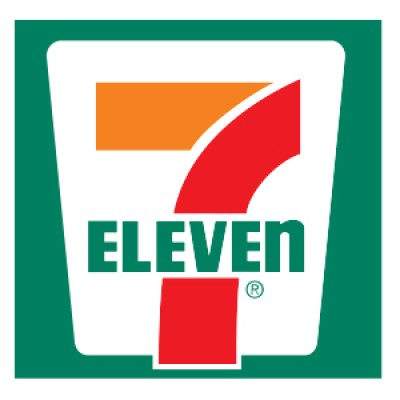The Conbini Conundrum: 7-Eleven's Future Hangs in the Balance
August 28, 2024, 6:38 pm

Location: United States, Texas, Irving
Employees: 10001+
Founded date: 1927
Total raised: $6M
In the bustling streets of Tokyo, 7-Eleven is more than just a convenience store. It’s a cultural icon. For decades, it has served as a lifeline for busy commuters, students, and families alike. From fresh rice balls to steaming hot coffee, it has redefined convenience in Japan. But now, the beloved chain faces a storm. A potential takeover by Canada’s Alimentation Couche-Tard threatens to disrupt the delicate balance of this cherished institution.
The story of 7-Eleven in Japan is a tale of transformation. It began as a simple franchise, but over the years, it evolved into a culinary powerhouse. Seven & i Holdings, the parent company, turned the humble store into a gastronomic haven. Fresh sandwiches, bento boxes, and even gourmet coffee became staples. This innovation was not merely about food; it was about logistics. The company mastered the art of supply chain management, ensuring that every item was fresh and ready for eager customers.
Yet, the winds of change are blowing. Couche-Tard’s audacious bid, rumored to be as high as $86 billion, has sent shockwaves through the retail landscape. This is not just another acquisition; it’s a potential upheaval of a national treasure. Japanese consumers are wary. They cherish the unique experience that 7-Eleven offers. The thought of a foreign entity taking control raises alarms. Will the quality diminish? Will the beloved rice balls and onigiri be replaced with subpar alternatives?
The stakes are high. 7-Eleven is not just a store; it’s a part of daily life for millions. It’s a place to grab a quick meal, pay bills, or even withdraw cash. In times of disaster, it serves as a crucial resource. The Japanese government has taken steps to encourage foreign investment, but this deal feels different. It’s not just about numbers; it’s about identity.
The history of 7-Eleven in Japan is rich. It opened its first store in 1974, and since then, it has become a staple in every prefecture. The first item sold? A pair of sunglasses. Fast forward to today, and the store offers a vast array of products that cater to local tastes. It has become a pioneer in the convenience store sector, introducing innovations that have changed how people shop.
However, the company is facing challenges. Activist shareholders have pressured management to streamline operations. The recent death of founder Masatoshi Ito marked a turning point. Under his leadership, the company resisted drastic changes. Now, with new leadership, the focus has shifted. The exit from the apparel business and the closure of underperforming stores signal a new era. But will these changes be enough to fend off Couche-Tard’s advances?
Analysts are divided. Some believe that Couche-Tard could bring valuable expertise to the table. The U.S. market is vast, and synergies could be realized. But others argue that the Canadian company lacks the understanding of Japanese consumer preferences. The Japanese market is notoriously difficult for foreign retailers. Walmart and Tesco have stumbled in the past, unable to capture the hearts of local shoppers.
The conbini experience is unique. It’s not just about convenience; it’s about quality and service. Japanese consumers have high expectations. They value fresh ingredients and attentive service. A foreign takeover could jeopardize this delicate balance. The fear is palpable. Will the iconic egg sandwich be replaced with a bland alternative? Will the warm, inviting atmosphere give way to a sterile corporate environment?
The potential takeover also raises questions about the future of Japanese retail. The landscape is changing. The government’s new guidelines on mergers and acquisitions reflect a shift in attitude. There’s a growing acceptance of foreign investment, but the stakes are higher than ever. A successful takeover could set a precedent, opening the floodgates for more foreign entities to enter the market.
For now, the future of 7-Eleven hangs in the balance. The company is at a crossroads. It must navigate the turbulent waters of corporate strategy while maintaining its core identity. The conbini is more than just a store; it’s a cultural touchstone. The challenge lies in balancing innovation with tradition.
As the bid unfolds, consumers will be watching closely. They want assurance that their beloved 7-Eleven will remain true to its roots. The stakes are not just financial; they are deeply personal. For millions, 7-Eleven is a part of their daily lives. It’s a source of comfort, convenience, and community.
In the end, the conbini experience is about more than just food. It’s about connection. It’s about the shared moments that happen over a cup of coffee or a quick meal. As the potential takeover looms, one thing is clear: the heart of 7-Eleven must remain intact. The future of this iconic brand depends on it.
The story of 7-Eleven in Japan is a tale of transformation. It began as a simple franchise, but over the years, it evolved into a culinary powerhouse. Seven & i Holdings, the parent company, turned the humble store into a gastronomic haven. Fresh sandwiches, bento boxes, and even gourmet coffee became staples. This innovation was not merely about food; it was about logistics. The company mastered the art of supply chain management, ensuring that every item was fresh and ready for eager customers.
Yet, the winds of change are blowing. Couche-Tard’s audacious bid, rumored to be as high as $86 billion, has sent shockwaves through the retail landscape. This is not just another acquisition; it’s a potential upheaval of a national treasure. Japanese consumers are wary. They cherish the unique experience that 7-Eleven offers. The thought of a foreign entity taking control raises alarms. Will the quality diminish? Will the beloved rice balls and onigiri be replaced with subpar alternatives?
The stakes are high. 7-Eleven is not just a store; it’s a part of daily life for millions. It’s a place to grab a quick meal, pay bills, or even withdraw cash. In times of disaster, it serves as a crucial resource. The Japanese government has taken steps to encourage foreign investment, but this deal feels different. It’s not just about numbers; it’s about identity.
The history of 7-Eleven in Japan is rich. It opened its first store in 1974, and since then, it has become a staple in every prefecture. The first item sold? A pair of sunglasses. Fast forward to today, and the store offers a vast array of products that cater to local tastes. It has become a pioneer in the convenience store sector, introducing innovations that have changed how people shop.
However, the company is facing challenges. Activist shareholders have pressured management to streamline operations. The recent death of founder Masatoshi Ito marked a turning point. Under his leadership, the company resisted drastic changes. Now, with new leadership, the focus has shifted. The exit from the apparel business and the closure of underperforming stores signal a new era. But will these changes be enough to fend off Couche-Tard’s advances?
Analysts are divided. Some believe that Couche-Tard could bring valuable expertise to the table. The U.S. market is vast, and synergies could be realized. But others argue that the Canadian company lacks the understanding of Japanese consumer preferences. The Japanese market is notoriously difficult for foreign retailers. Walmart and Tesco have stumbled in the past, unable to capture the hearts of local shoppers.
The conbini experience is unique. It’s not just about convenience; it’s about quality and service. Japanese consumers have high expectations. They value fresh ingredients and attentive service. A foreign takeover could jeopardize this delicate balance. The fear is palpable. Will the iconic egg sandwich be replaced with a bland alternative? Will the warm, inviting atmosphere give way to a sterile corporate environment?
The potential takeover also raises questions about the future of Japanese retail. The landscape is changing. The government’s new guidelines on mergers and acquisitions reflect a shift in attitude. There’s a growing acceptance of foreign investment, but the stakes are higher than ever. A successful takeover could set a precedent, opening the floodgates for more foreign entities to enter the market.
For now, the future of 7-Eleven hangs in the balance. The company is at a crossroads. It must navigate the turbulent waters of corporate strategy while maintaining its core identity. The conbini is more than just a store; it’s a cultural touchstone. The challenge lies in balancing innovation with tradition.
As the bid unfolds, consumers will be watching closely. They want assurance that their beloved 7-Eleven will remain true to its roots. The stakes are not just financial; they are deeply personal. For millions, 7-Eleven is a part of their daily lives. It’s a source of comfort, convenience, and community.
In the end, the conbini experience is about more than just food. It’s about connection. It’s about the shared moments that happen over a cup of coffee or a quick meal. As the potential takeover looms, one thing is clear: the heart of 7-Eleven must remain intact. The future of this iconic brand depends on it.
